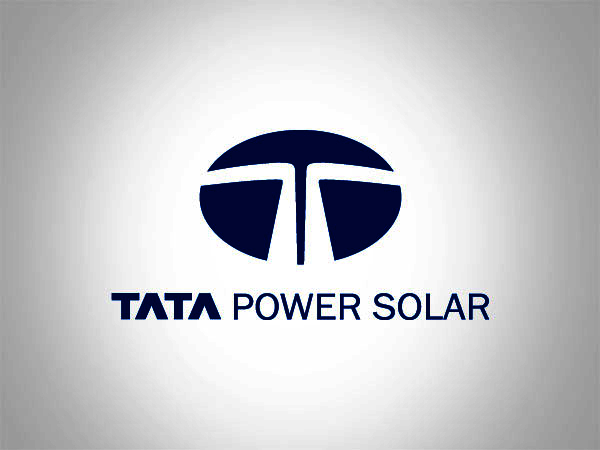Tata Power and Tata Steel, the two flagship companies of the Tata Group, have come together to develop grid-connected solar plants in Jharkhand and Odisha. The two companies have signed a Power Purchase Agreement (PPA) for a duration of 25 years to set up 41MW solar project, which will be a combination of rooftop, floating and ground mounted solar panels. Under the project, Tata Power will develop Photo Voltaic (PV) capacities for Tata Steel at Jamshedpur (21.97MWp) and Kalinganagar (19.22MWp).
Under the PPA, at Jamshedpur, Tata Power will develop rooftops PV with 7.57 MWp capacity, while floating and ground mounted capacity would be 10.80 MWp and 3.6MWp, respectively. The ground mounted PV will be installed at Sonari Airport, Jamshedpur. Kalinganagar will have 9.12 MWp rooftop PV capacities, and floating PV will constitute 10.10 MWp.
The estimated energy generation through 41.19MWp solar project is 6, 02, 80,095 kWh for the first year. During its lifetime (i.e. for 25 years), the total energy generation would be 1,40,93,61,488 kWh. The project will help save 45210 tonnes of CO2 per year and 1057021 tonnes during its lifetime (25 years).
Tata Power and Tata Steel have constantly explored opportunities to exploit renewable energy sources, which is the best way of mitigating the impact of climate change. Today’s announcement is yet another milestone in the common quest of both the companies to become a sustainability driven enterprise, committed to exploring clean energy solutions.
In March 2021, the two companies had announced to develop a 15MW solar project at Jamshedpur. This project would generate an average of 32 MUs of energy per year. It will help in offsetting approximately average 25.8 million Kgs of CO2 annually. Earlier in 2017, Tata Power Solar had commissioned a 3MW Solar PV Power Plant in Tata Steel’s Iron Ore Mine at Noamundi. This was the first solar power plant of its kind at any iron ore mine in the country.
Thanking Tata Power for partnering on this very important initiative, T V Narendran, CEO & MD, Tata Steel, said: “At Tata Steel, sustainability has always been a core principle that is embedded in its business philosophy and is backed by a long-term, holistic vision of achieving identified targets. We have taken several definitive steps across the value chain to reinforce our sustainability credentials. In recent past, power generation from solar and non-conventional energy sources have gained momentum across our operating locations. We will continue with our pursuit of clean energy solutions and expand our renewable energy footprint.”
Talking of the valued partnership, Dr Praveer Sinha, CEO & MD, Tata Power, said: “We are glad to collaborate with Tata Steel to help them reduce their carbon footprint and reaffirm the Tata Group’s commitment towards the adoption of clean energy. Tata Power and Tata Steel have been collaborating for a long time to meet the energy requirements through cleaner means. This blended solar PV project is yet another milestone in our shared vision of a better tomorrow and we look forward to working closely with them for covering all their other plants across the Country.”
In line with India’s Nationally Determined Contributions (NDC), Tata Power has furthered its vision for a sustainable tomorrow with its commitment to achieving Carbon Neutrality before 2050. The company has a focused 3D Framework of Decarbonization, Decentralization and Digitization and is committed to empower a billion lives through sustainable, affordable and innovative energy solution. The company is pursuing 2 GW of Solar and hybrid capabilities annually to grow more than 25 GW by 2030.
A signatory to the Task Force on Climate-related Financial Disclosures for climate change, Tata Steel is committed to becoming a sustainable steel producer and has taken definitive steps to achieve this goal. The Company set up India’s first steel scrap recycling plant in Rohtak followed by a plant for CO2 capture from Blast Furnace gas at its Jamshedpur Works, also first in the country. Tata Steel is investing in enabling long term sustainable solutions in logistics and supply chain and has pioneered the Electric Vehicles for transportation of finished steel in the country. The Company has also earned the distinction of becoming the first steel producer in the world to join the Sea Cargo Charter (SCC) to reduce ‘Scope 3’ greenhouse gas emissions in ocean trade.
You may also like
-
Dot Simplifies Approval Processes For Telecom Licenses And Wireless Equipment
-
PM to Inaugurate SEMICON India 2024 on 11th September
-
Shri Piyush Goyal Sets 500 Million Tonnes Domestic Steel Production Target by 2034
-
NHAI to Track Around 100 Toll Plazas with GIS-Based Software for Seamless Movement of Traffic at National Highways
-
“Marching Towards Building A Digitally Connected Bharat and An Atmanirbhar Telecom Sector”: Union Minister Jyotiraditya Scindia
